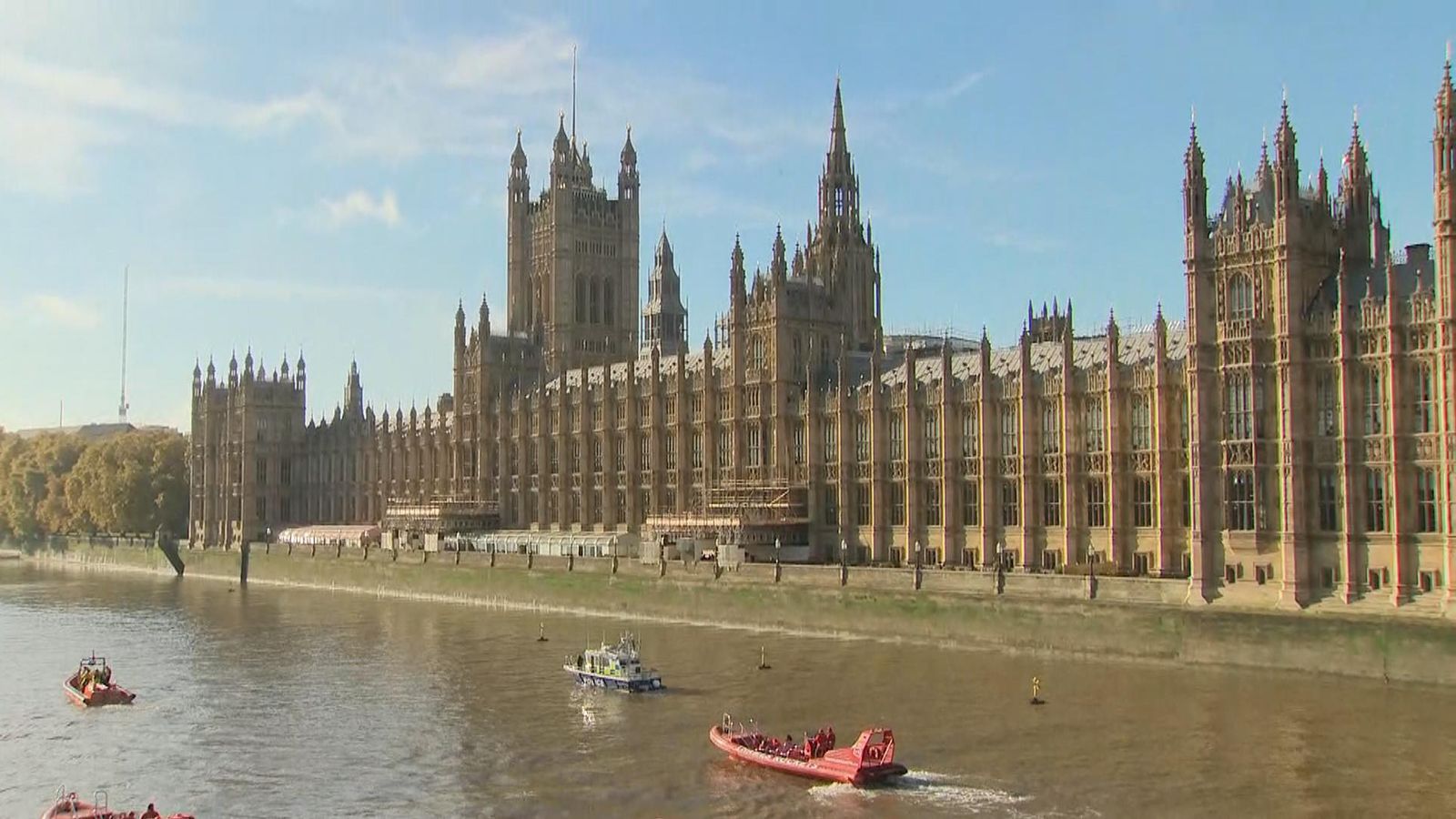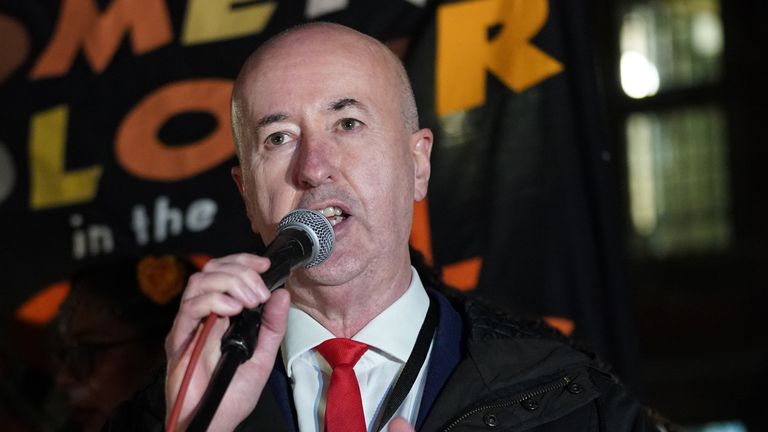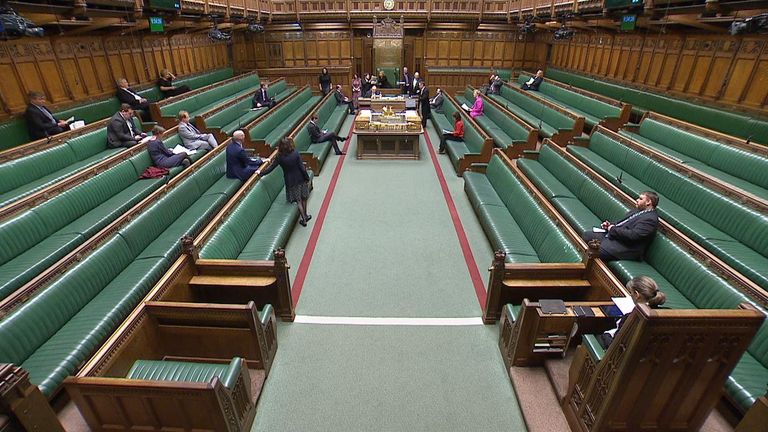MPs under investigation for violent or sexual crimes could be banned from parliament under new plans to crack down on Westminster “sleaze”.
Members of parliament themselves will vote on measures which could bar colleagues from entering the parliamentary estate or going on taxpayer-funded trips if they are being probed by police for serious offences.
The proposals on so-called “risk-based exclusions” are being finalised and will be put before MPs later this month.
Parliamentary staff welcomed the announcement but called for it to go further – saying many complainants of sexual harassment don’t go to the police.
Politics Live: Johnson ‘perfectly content’ for COVID inquiry to see his WhatsApps
It comes after the latest so-called “Pestminster scandal” on Thursday, as veteran Labour MP Geraint Davies was suspended from the party over sexual misconduct claims.
The Swansea West MP, who denies wrongdoing, is facing a Labour investigation into reports of “incredibly serious allegations of completely unacceptable behaviour”.
Allegations regarding the 63-year-old politician came to light in a report by Politico and Sky News later revealed that he had apparently “boasted” about bringing sex workers into parliament for drinks, according to two of his colleagues.
Sky News has also seen evidence the Labour Party whips’ office was made aware of allegations many months ago but did not take action.
Insiders said this was because party officials could not act without formal complaints being made.
Read more:
MP ‘boasted of taking escorts to parliament’
Labour: ‘Judge us by our actions’
On Friday morning, shadow minister Alex Norris confirmed Labour is now reviewing its internal complaints process.
He told Sky News the party is “committed to changing the culture” following suggestions the alleged misconduct of Mr Davies was an “open secret”.
Asked if a review is taking place into the party’s internal complaints procedures, Mr Norris told Sky News: “Yeah. It is important that these processes evolve to make sure they’re fit for purpose.
“Recent events have shown that perhaps they do need to be looked at, so the party’s taken the decision to review them to make sure that they’re effective.”
Sky News understands the Labour Party received a formal complaint about the suspended Mr Davies on Thursday afternoon.
Mr Norris said he is “very sad to hear” that Labour staff do not feel safe enough to come forward, adding: “I know that words don’t make that go away, but judge us by our actions. We are taking those actions and we are committed to changing the culture.”
Asked if MPs should be barred from the parliamentary estate if allegations are made against them, he said there needs to be a process so they can still vote and represent constituents while a probe is conducted.
But he added: “If a judgement is made that it isn’t safe, then of course people shouldn’t be around whilst the facts are established.”
MPs to vote on ‘risk-based exclusions’
The debate on “risk-based exclusions” for MPs is scheduled to take place on 12 June.
A House of Commons spokesperson said the exclusions “will apply to the parliamentary estate and parliamentary-funded travel” for members under criminal investigation for violent or sexual offences.
They added: “The proposals are currently being finalised by the Commission, who are engaging with the House of Lords, and will be published in due course. These proposals will then be a matter for the House to decide on, with a vote to follow their publication.”
However, the GMB union wants exclusions to include reports made to parliament’s Independent Complaints and Grievance Scheme (ICGS) “as many complainants of sexual harassment don’t go to the police”.
Read more politics news:
Why WhatsApp could stop us knowing the truth
Johnson to hand over messages direct amid ‘cover-up’ concerns
Gordon Brown forms group of MPs calling for reform
Union representative Jenny Symmons said during the ICGS process the consideration of exclusion does not come until the very last stage of recommendations – which can take more than a year.
She said: “That’s why GMB in Parliament are calling for the ICGS process to incorporate cluster reporting, so that different people can make smaller reports about same person knowing that they could be grouped together and show a pattern of behaviour.”
Mr Davies has not responded to any of Sky News’ requests for a statement, but regarding their claims, he told POLITICO: “I don’t recognise the allegations suggested and do not know who has made them. None of them, as far as I know, has been lodged as complaints with the Labour Party or parliament.
“If I have inadvertently caused offence to anyone, then I am naturally sorry as it is important that we share an environment of mutual and equal respect for all.”


